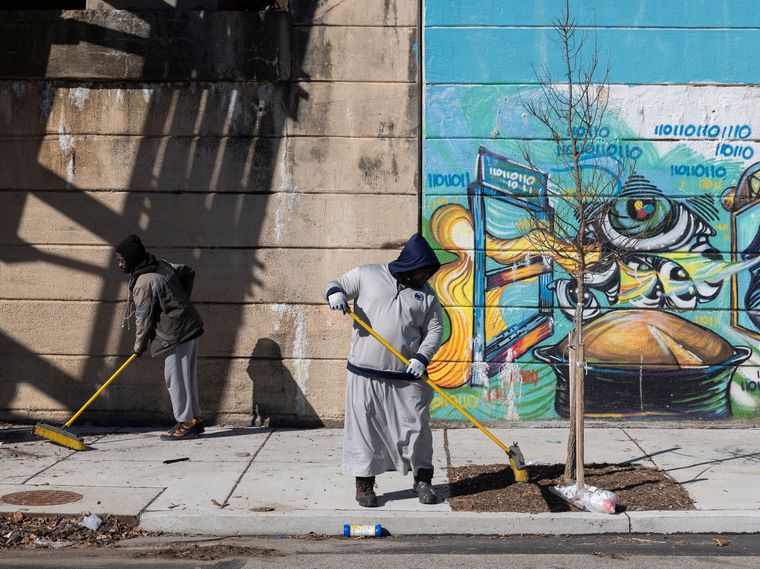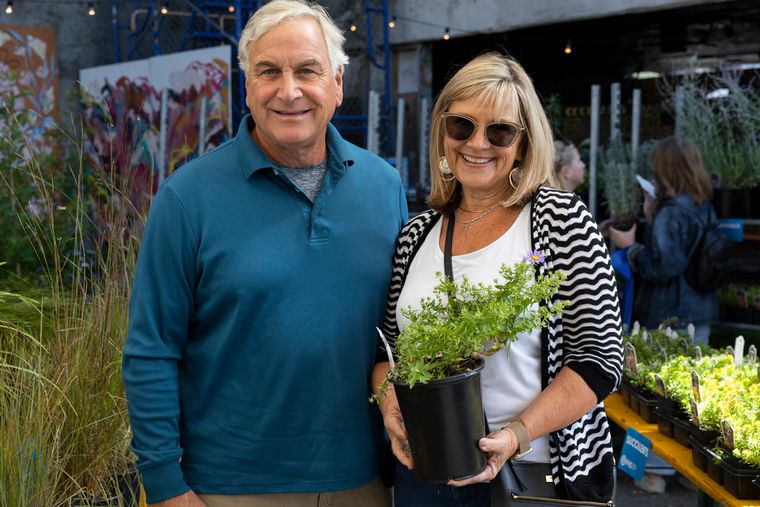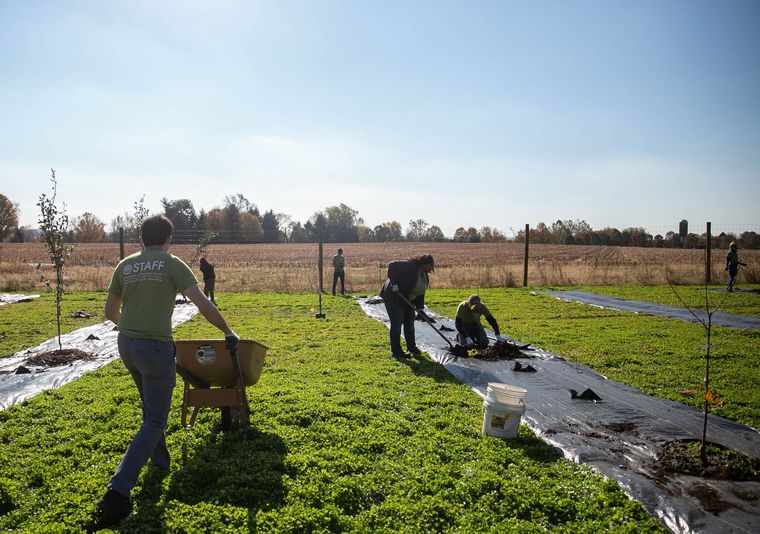



The History of Urban Agriculture in Philadelphia and PHS Community Gardens
phs community & events

By Justin Trezza, PHS Director of Garden Programs
Philadelphia and Southeastern Pennsylvania have a long and rich history in land tenure and stewardship, stemming from the Lenni-Lenape to the creation of the Philadelphia Vacant Lots Cultivation Association in 1897. Encouraged by the “Detroit Experiment,” where thousands of acres in Detroit were converted to food production spaces, Philadelphia embarked on a similar social program in 1897 with 100 families on 27 acres and continued this program until 1927.
Fast forward to the 1970s, the region witnessed a resurgence in the urban gardening and farming movement as an expression of self-reliance and sovereignty. Not only was there a rise in DIY culture, but disinvested and emerging communities throughout Philadelphia began transforming their neighborhoods through occupying vacant parcels and converting them into green spaces. This happened across the city in neighborhoods such as Southwest Philadelphia and North Philadelphia. Residents began to identify and transform previously vacant parcels and create oases where they could grow food and much more.

Cultivating Community: PHS's Role in Urban Agriculture
At this time, the Pennsylvania Horticultural Society’s Philadelphia Green (PG) program and Penn State’s Urban Garden Program each played a role in supporting neighborhoods in activating and sustaining these crucial spaces. PHS’s Philadelphia Green program worked hand-in-hand with dozens of neighborhood groups, supporting them with the establishment and maintenance of community gardens throughout the city. Eventually, this program grew to include Green Country Towne, a three-to-five-year project whereby PHS would support a community in beautifying its neighborhood. Some of these projects still exist to this day, including the gardens of Norris Square Neighborhood Project such as Las Parcelas and Las Raíces.
Today, PHS’s Healthy Neighborhoods division continues the work of Philadelphia Green – working with communities to 1) create healthy living environments, 2) increase access to fresh food, 3) expand economic opportunity, and 4) build meaningful social connections. Within PHS’s Healthy Neighborhoods team are our core community-focused programs: Landcare and Workforce Development, Trees, Stormwater Solutions, Nicetown and Tioga 'Love Where You Live' Greening Plan, and our Community Gardens Program.

Sowing the Future: PHS's Community Gardens Program
PHS’s Community Gardens program focuses on advancing urban agriculture -- which includes community gardens, school gardens, and urban farms -- here in our city and the surrounding region. Supporting over 170 community gardens, urban farms, and grow spaces out of Philadelphia’s estimated 300+ nighborhoods, and working in partnership with land preservation organization Neighborhood Gardens Trust, the PHS Community Gardens Program offers an array of supports to local growers and gardeners. PHS provides organic growing supplies like insect netting and row cover, access to tools at our urban agriculture tool lending library located at Glenwood Green Acres, organically propagated seedlings, technical assistance, and much more.
In addition to these services and supports, the PHS Community Gardens program also operates several Green Resource Centers (GRC) in partnership with community partners including Weaver’s Way, Awbury Arboretum, Sankofa Community Farm at Bartram’s Garden, and Strawberry Mansion CDC (Community Development Corporation). Our Green Resource Centers propagate and distribute over 260,000 organically grown vegetable and herb seedlings each year including crops like Petch Siam eggplants, Aji Dulce peppers, Green Forest lettuce, and much more.
In 2021, PHS expanded its Community Gardens program by adding our PHS Green Resource Center at Norristown Farm Park. The GRC at Farm Park is yet another example of PHS’s commitment to increasing access to fresh food for emerging communities in Montgomery County. Located in Montgomery County, the Norristown GRC at Farm Park has grown and distributed over 19,000 lbs. of produce through our Food as Medicine Initiative (a partnership with Montgomery County’s Managed Care Solutions and Creative Health Solutions in Pottstown), and through partners like ICNA Relief, CCATE and CHOP Karabots Norristown.
The Future of Urban Agriculture and Community Gardens
Though community gardens and urban agriculture face new threats to their existence, including land security and development, there is also hope. In 2023, the City of Philadelphia published its first Urban Agriculture Strategic Plan, Growing from the Root, a ten-year food policy road map that takes a comprehensive view of Philadelphia’s food system – from land to consumption. At PHS, we see urban agriculture and community gardens as vital to our city’s infrastructure – a third space that brings the community together for a common purpose, and an opportunity to share, grow, and be resilient.
For more information about the PHS Community Gardens Program please visit: Community Gardens.
Want to learn more? Subscribe to PHS's monthly newsletter for more gardening tips and stories.


